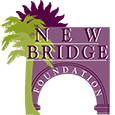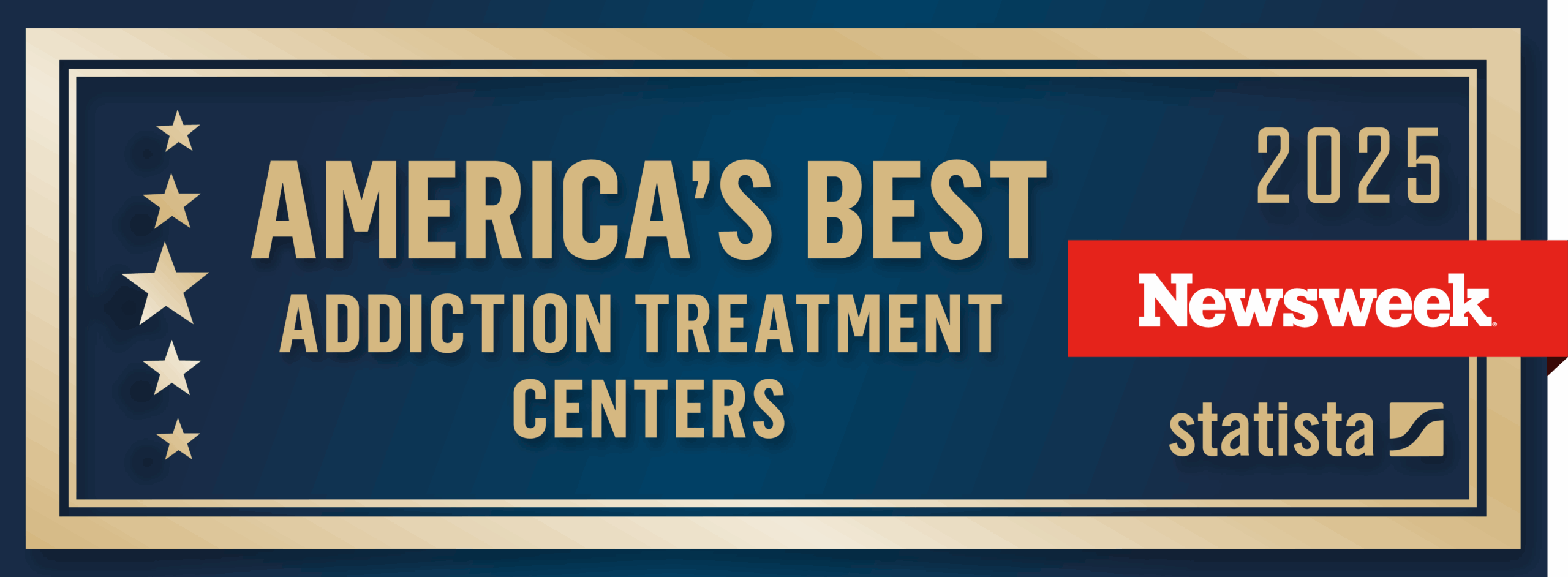Completing detox is a major achievement. It takes courage, strength, and the willingness to begin something new. Once detox is complete, though, another phase of recovery begins. The mind, body, and emotions all need time and care to fully heal.
Addiction treatment after detox helps people take that next step. It focuses on learning new coping skills, managing triggers, and creating lasting change. At New Bridge Foundation® in Berkeley, California, our programs guide people from detox into meaningful, long-term recovery through counseling, structure, and support.
The role of detox in addiction recovery
What detox actually does
Detoxification, or detox, helps the body safely clear alcohol or drugs while managing withdrawal symptoms. This stage of recovery is medically supervised to ensure safety and comfort.
In New Bridge Foundation®’s medically supervised detox program, participants receive 24-hour monitoring, medication support, and encouragement from a compassionate team. Detox helps people regain physical stability and prepares them for counseling, which focus on emotional and behavioral healing.
The limitations of detox
Detox is valuable, but it’s not enough to create long-term recovery on its own. According to the National Institute on Drug Abuse (NIDA), detoxification “is not sufficient to help a person recover,” and many people return to substance use without additional treatment.
While detox stabilizes the body, it does not address the thoughts, emotions, or habits linked to substance use. These underlying factors are the focus of ongoing addiction treatment that follows detox.
Why detox alone isn’t enough
Addressing underlying causes of addiction
Substance use often develops alongside emotional distress, trauma, or mental health challenges. Detox cannot address these deeper issues. Comprehensive treatment helps people understand what contributes to their substance use and develop healthier ways to cope.
At New Bridge Foundation®, participants work through individual counseling, group counseling, and trauma-informed care to address the underlying causes of addiction and build tools for lasting recovery.
The risk of relapse without follow-up treatment
Relapse can happen when treatment ends too soon. NIDA reports that relapse rates for substance use disorders are similar to those for chronic illnesses like hypertension and asthma. Continuing care is the best way to maintain progress.
Structured programs provide support during the period when people are most vulnerable to returning to substance use. Continued counseling, peer accountability, and education help strengthen recovery and reduce relapse risk.
Addiction’s effect on the brain
Substance use affects the brain’s reward and stress systems. Over time, the brain adapts to repeated exposure to drugs or alcohol, creating strong associations between substance use and relief. Even after detox, these brain changes remain.
Ongoing treatment helps the brain adjust and recover. Evidence-based therapies, such as cognitive behavioral therapy (CBT) and motivational enhancement therapy, teach people to manage cravings and make healthier choices.
What comes after detox at New Bridge Foundation®
Residential addiction treatment programs in Berkeley, CA
After detox, many people benefit from a structured environment where they can focus on recovery. New Bridge Foundation®’s short-term and long-term residential treatment programs offer 24/7 supervision, counseling, and wellness support in a safe and therapeutic setting.
Residential programs include:
- Individual and group counseling focused on emotional and behavioral change
- Relapse prevention training and life-skills development
- Holistic care such as mindfulness, exercise, and nutrition education
- Peer support to encourage accountability and connection
Living on-site allows participants to separate from daily stressors and dedicate time to recovery.
Short-term vs. long-term treatment
New Bridge Foundation® offers two residential program options to meet different recovery needs:
- Short-term residential rehab: A 30–60-day program focused on stabilization, counseling, and relapse prevention before transitioning to outpatient care.
- Long-term residential rehab: A 90-day or longer program designed for people with complex needs, including trauma or an extensive history of relapsing after treatment.
Both programs include comprehensive counseling and recovery education tailored to each person’s situation.
Specialized programs for individual needs
New Bridge Foundation® also offers programs designed for specific populations.
- Specialized rehab for veterans and active-duty military personnel provides trauma-informed care and peer connection.
- LGBTQ+ supportive programs create a safe, inclusive environment for recovery.
- Dual diagnosis treatment integrates mental health and substance use care.
Each program is designed to meet people where they are and provide focused, respectful care.
Evidence-based therapies that support lasting recovery
Cognitive behavioral therapy (CBT), group counseling, and holistic care
Therapies grounded in research provide structure and stability during recovery. CBT helps people identify negative thought patterns and change behaviors that lead to substance use. Group counseling builds accountability and offers opportunities to share experiences with others in recovery.
Holistic practices such as yoga, mindfulness, and physical activity help reduce stress and promote balance. These practices complement counseling and improve overall well-being.
Medication-assisted treatment (MAT)
Medication-assisted treatment (MAT) may be used as part of recovery when clinically appropriate. Medications such as methadone, buprenorphine, or naltrexone can reduce cravings and withdrawal symptoms when paired with counseling.
Combining medication and counseling improves outcomes for people recovering from addiction.
At New Bridge Foundation®, MAT is integrated carefully into treatment planning when appropriate and supported by counseling and relapse prevention education.
Family involvement in recovery
Addiction affects families as well as the person receiving treatment. Family counseling helps rebuild trust, repair communication, and strengthen relationships. Loved ones learn how to provide support without enabling, creating a foundation that encourages long-term stability.
Transitioning from detox to treatment in Northern California
Why location matters
Staying close to home can make it easier to stay connected to supportive friends and family. For people in or near the Bay Area, New Bridge Foundation® offers a convenient and accessible option for addiction treatment in Berkeley, CA.
Our campus combines professional care with a calm, private environment, helping clients stay focused on recovery without isolation from their community.
The benefits of choosing New Bridge Foundation®
New Bridge Foundation® has provided addiction treatment in Northern California for more than 55 years. Our programs combine evidence-based counseling, personalized care, and holistic recovery support.
We are proud to be recognized as one of America’s “Best Addiction Treatment Centers” by Newsweek for six consecutive years. This recognition reflects our dedication to helping people achieve long-term recovery.
Aftercare and relapse prevention planning
Planning for life after treatment is part of every recovery plan. Before leaving residential care, clients work with staff to develop an individualized aftercare plan that may include:
- Referrals for continued counseling
- Support group participation (AA, NA, or SMART Recovery)
- Weekly aftercare support groups
- Referrals for sober living homes including New Bridge Foundation®’s sober living for those who meet the criteria
These supports help maintain progress and provide guidance during life’s next chapters.
The treatment continuum: How recovery builds over time
| Phase of recovery | Typical duration | Purpose and focus |
| Detoxification | 3–10 days | Safely remove substances from the body and manage withdrawal with medical supervision |
| Short-term residential treatment (Helios Program) | 30–60 days | Stabilize emotions, strengthen coping skills, and prepare for continued recovery |
| Long-term residential treatment (START Program) | 90+ days | Continue counseling, address trauma, and reinforce healthy behaviors |
| Intensive outpatient program (IOP) | Several weeks to several months | Combine counseling and accountability with flexibility for work or school |
| Aftercare and alumni support | Ongoing | Maintain progress through counseling, support groups, and relapse prevention strategies |
The importance of personalized timelines
No two recovery journeys follow the same timeline. Factors such as the severity of addiction, type of substance, mental health conditions, and support system influence how long treatment lasts.
For example, someone recovering from opioid use may need more time in residential treatment than someone with a mild alcohol use disorder. A person with co-occurring depression or PTSD might need additional counseling or medication management.
At New Bridge Foundation®, care is tailored to each person’s goals and progress. Regular assessments ensure treatment stays aligned with individual needs and recovery milestones.
How to get started with addiction treatment at New Bridge
Admissions process and insurance verification
The first step is often the hardest, but our admissions team makes it easier. During an initial consultation, staff gather information about your history, current challenges, and goals for recovery. We then recommend the most appropriate level of care—detox, residential, or intensive outpatient.
Insurance verification is part of this process. Our team works with major insurance providers to confirm coverage and review payment options before treatment begins.
Contact information and next steps
Recovery is possible with the right support. If you or someone you love needs treatmentand is ready for the next step, contact New Bridge Foundation® today. Our team will guide you through the process, answer your questions, and help you begin addiction treatment that promotes long-term success.
FAQ
Is detox the same as addiction treatment?
No. Detox focuses on physical stabilization, while addiction treatment provides counseling to address mental and behavioral patterns.
What happens after detox at New Bridge Foundation®?
After detox, clients typically enter short-term or long-term residential rehab or our intensive outpatient program, depending on their needs and circumstances.
Can you relapse after detox?
Yes, relapse can occur without continued support. Participating in structured addiction recovery programs significantly reduces this risk.
Does insurance cover addiction treatment?
Many insurance plans cover treatment. Our staff can verify coverage and discuss available options to make care accessible.
If you or a loved one has completed detox somewhere else and need continued support, New Bridge Foundation® can help. We offer personalized programs, compassionate care, and a proven path toward recovery.
Call New Bridge Foundation® at 866.772.8491 today to learn more about our addiction treatment programs in Berkeley, CA.








